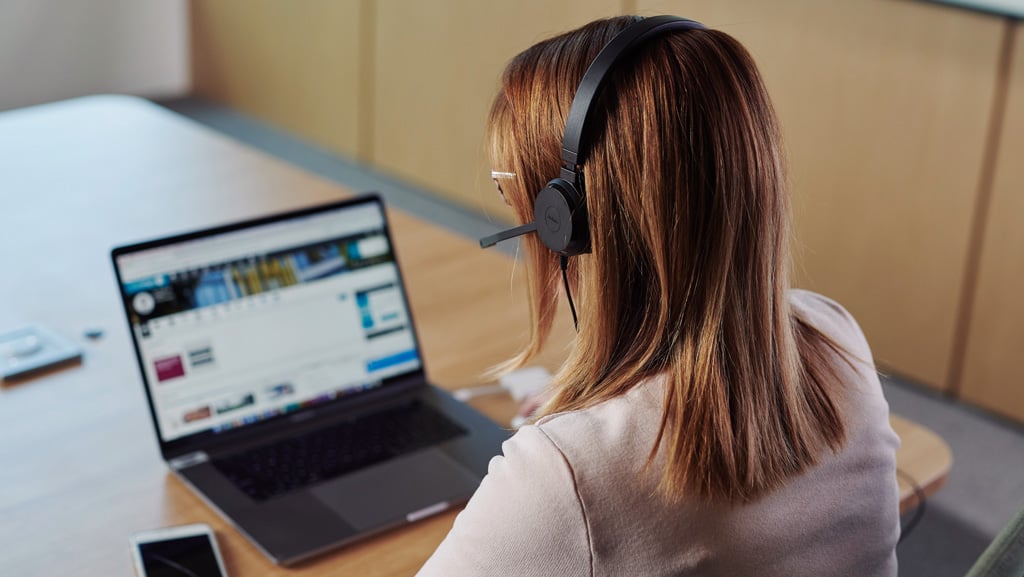Do you have a learning barrier? Help is available ahead of end-of-unit assessments
Are you managing a long-term disability or learning barrier that affects your study? Perhaps you’re dealing with a temporary disability or injury, or you care for someone with disability. You’re among thousands of students at Deakin who face challenges when accessing physical spaces, communicating, participating in social activities or performing certain tasks.
As the end-of-unit assessment (EoUA) period approaches (8–16 February), you should know about the accessibility and inclusion support that’s available at Deakin. Much of this is quick and easy to access, while some may require a more formal application process.
How you can access help before your EoUAs
Talk to your unit chair
If you are concerned about your ability to complete any assessment, please do not hesitate to speak to your unit chair or lecturer in the first instance.
‘A lot of students feel apprehensive – the title “unit chair” feels a bit scary, but they’re there to help you,’ says student Mairead Foley. ‘Emailing is an easy and stress-free way of checking in with any questions or requirements you might have. Most are happy to have a Zoom call or quick chat after class.
‘Having that relationship makes it easier down the line to ask for help, especially when it comes to end-of-unit assessments, where you’re already stressing.’
Connect with other students
Study buddies may help you improve your learning by helping you to stay motivated, talking through material to aid your understanding, and providing a support network. You may also want to check out the Deakin Disability Neurodivergency Association (DDNA), run through DUSA.
Use the unit discussion boards
Don’t be afraid to post any questions about an upcoming assessment on your unit discussion boards. Discussion boards are handy as students will often have similar questions about assessments, so a lecturer’s response to your question will be helpful to others in your unit, and likewise you may pick up great tips for tackling your assignments based on questions other students have posted. You also have the option to post anonymously if you wish.
Use assistive technology and accessible spaces
At Deakin, our teaching principles are informed by recognised global standards for web accessibility and we also provide a range of software that can improve access to online content and assessments based on aspects such as:
- Vision: people who are blind or vision-impaired may use screen reader software that reads online content aloud, navigate using a keyboard rather than a mouse and need images to be described in meaningful ways.
- Hearing: people who are deaf or hard of hearing may need captioning for video presentations and visual indicators in place of audio cues.
- Motor: people with motor impairments may need alternative keyboards, eye control or other adaptive hardware to help them type and navigate on their devices.
- Cognitive: people with learning disabilities and/or other neurodiverse conditions benefit from uncluttered unit sites, consistent and intuitive navigation, and plain language.
See the Disability support webpage for details about assistive technology available to you, plus read more about how the library can help students with a disability.
Ask for help
If you’re really struggling, let someone know – you’re not alone at Deakin. Our ADHD support groups and NAVIGATE program can help you manage your studies if you’re neurodivergent, plus you can also access the Deakin Medical Centre and student advocacy from SSAS, run by DUSA. They’re great if you need help quickly without accessing formal support through the University.
Do you require formal, long-term support?
The Disability Resource Centre (DRC) works with Deakin students, and supports the University community to be more inclusive and provide adjustments where required.
Examples of DRC support include helping you to communicate your needs to academic staff, EoUA adjustments via access plans, study materials and assessments in accessible formats, assistive technology, and specialised support such as AUSLAN interpreters and access to software. See what help is available and how to apply. Supporting documentation from a health professional is usually required to explain your needs.
If you’re unsure about your eligibility or the services offered by the DRC, we encourage you to reach out for a chat. Our team is here to answer your questions, provide guidance, and assist you in taking the first steps toward accessing the useful support, tools and strategies.
The DRC has a drop-in service available at the following times:
- Burwood: Tuesdays, 10am–2.30pm, at Student Central HE Hub
- Waurn Ponds: Wednesdays, 10am–2.30pm, from 6 March at NIKERI
- Waterfront: Any time via Student Central
- Warrnambool: Drop-ins are planned from late February–March (details to be confirmed).
You don’t need to make an appointment or prepare, and you are welcome to bring a support person if you like.
